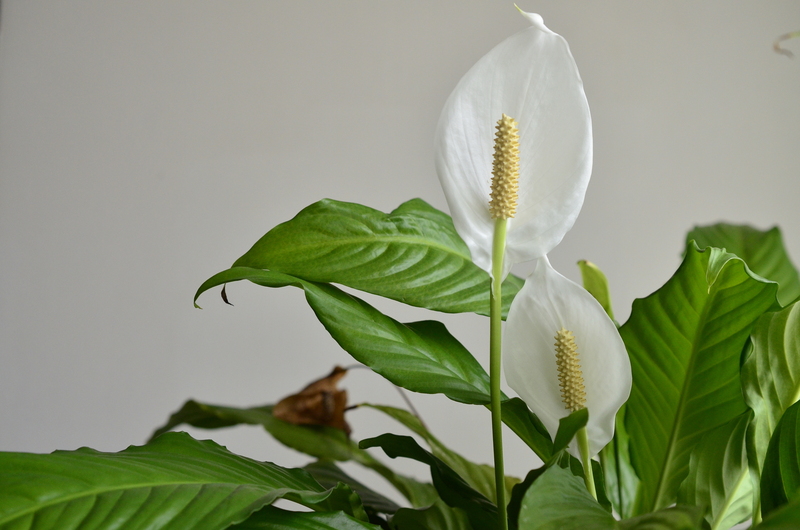Embrace Peace with a Captivating Zen Garden Design
Posted on 09/06/2025
Embrace Peace with a Captivating Zen Garden Design
The search for tranquility in the modern world is leading many homeowners and landscape enthusiasts to the transformative art of Zen garden design. These stunning and spiritual spaces, rooted in centuries-old Japanese tradition, offer sanctuaries of serenity amid our hectic daily lives. Whether you seek relaxation, introspection, or simply an aesthetically pleasing outdoor retreat, discovering the art of Zen-inspired landscaping can be a life-changing journey. In this comprehensive article, we will explore how to embrace peace and mindful living with a captivating Zen garden design.

What is a Zen Garden?
Often referred to as Karesansui, or "dry landscape" gardens, Zen gardens originated in Japan during the Muromachi period. Traditionally, these gardens are designed with minimalist elements: rocks, white gravel or sand, moss, pruned shrubs, and occasional water features or bridges. The purpose of a Zen garden is to inspire contemplation and harness the calming beauty of simplicity.
- Simplicity: Minimalist and visually uncluttered, encouraging a peaceful state of mind.
- Symbolism: Stones may represent mountains and islands, gravel or sand represent water or the sea.
- Meditation: Designed as spaces for quiet reflection and spiritual refreshment.
Zen landscaping is adaptable to various environments--whether you have a sprawling backyard or a modest urban space, you can create a peaceful Zen garden design that suits your space and sensibilities.
Benefits of a Zen Garden
Investing your time and resources in a captivating Zen garden design brings numerous physical, psychological, and emotional rewards:
- Stress Reduction: The act of designing, maintaining, or simply sitting in a Zen garden can greatly lower stress levels.
- Mental Clarity: The minimalist nature of Zen gardens helps declutter the mind, enhancing focus and creativity.
- Connection to Nature: Interacting with natural elements grounds you in the present and encourages mindfulness.
- Increased Property Value: A well-designed Zen corner or garden augments your home's curb appeal and market price.
- Low Maintenance: With careful planning, a Zen garden can be remarkably easy to care for compared to conventional lawns or flowerbeds.
Essential Elements of Zen Garden Design
Though every garden is unique, the following elements are the cornerstones of traditional Japanese Zen garden designs:
1. Rocks and Stones
In Zen gardens, stones symbolize mountains, islands, or even living creatures. Their placement is deeply symbolic and intentional--choose stones of different sizes and textures, and arrange them in groups of odd numbers for visual balance. The stone arrangement creates focal points for meditation and interpretation.
2. Gravel and Sand
The raked gravel or sand forms the "sea" in Zen garden symbolism. Using a wooden rake, draw patterns representing waves or ripples, symbolizing the flow of water and the impermanence of life. This act is meditative and brings you into the present moment.
3. Moss and Greenery
While minimalism is vital, carefully chosen moss, ferns, or small shrubs add a touch of lushness and contrast to the rocky landscape. Moss is particularly valued in Japanese Zen gardens for its soft appearance and association with tranquility and age.
4. Water Features
Though not always present in traditional Zen gardens, small ponds, streams, or bamboo fountains (known as shishi-odoshi) can introduce the soothing sound of water. Water signifies purity and continual renewal, reinforcing the sense of peace.
5. Bridges and Pathways
Curved bridges or stepping stone paths guide you on an intentional journey through your Zen garden, symbolizing life's transitions. Stone or wood materials are most authentic, blending seamlessly with the natural surroundings.
6. Ornaments and Accents
Stone lanterns, bamboo fences, or minimalist statues bring a touch of art and culture, but clarity and restraint are key--avoid crowding your space. Every accent should serve a purpose and contribute to the overall sense of harmony.
Designing Your Zen Garden: Inspiration and Ideas
Ready to embark on the transformative journey of Zen garden design? Here's how to bring a sense of peace and balance to your landscape:
Choose the Location
- Backyard Zen Corner: Dedicate a part of your yard to create a secluded meditation space.
- Front Yard Tranquility: Make a striking, peaceful feature near your home's entrance.
- Indoor Zen Garden: Even a mini Zen garden in a tray or pot can bring serenity indoors.
- Patio or Balcony Retreat: Container gardens work beautifully in urban apartments and condos.
Plan the Layout
- Outline the garden's borders with natural materials: stones, bamboo, or wood.
- Sketch a simple plan; include primary features such as boulders, gravel beds, moss patches, and pathways.
- Remember, asymmetry is central to Zen design--avoid overly regular shapes.
Select the Materials
- Gather local rocks and stones whenever possible for authenticity.
- Select fine, light-colored gravel (crushed granite or quartz) for raking into calming patterns.
- Choose shade-tolerant greenery: Japanese maples, small conifers, moss, or ferns are ideal.
- Add tasteful bonsai or topiary for a touch of artful pruning.
Integrate Zen Principles
A captivating Zen garden design is more than just an arrangement of objects; it's the application of profound Japanese principles, including:
- Kanso (Simplicity): Eliminate clutter, use minimal varieties of plants and materials.
- Fukinsei (Asymmetry): Naturalness is valued over strict symmetry.
- Shizen (Naturalness): Let the landscape mimic nature's effortless patterns.
- Shibui (Subtlety): Understated beauty is more powerful than eye-catching displays.
Creating a Zen Meditation Space
True peace is found not only in the external beauty of your Zen garden but in the experiences it enables. Here's how to foster deeper serenity:
- Add Comfortable Seating: Whether a simple bench or a flat stone, provide a spot to pause and reflect.
- Encourage Mindfulness: Use your Zen space for meditation, yoga, reading, or simply enjoying nature's rhythms.
- Dedicate a Ritual: Spend a few minutes daily raking the gravel, pruning plants, or just being still--this ritual connects you with the garden and your own inner calm.
Zen Garden Maintenance Tips
A peaceful Zen garden design is naturally low-maintenance, but its value is maintained through regular attention:
- Rake gravel or sand weekly to refresh patterns and remove debris.
- Trim moss, shrubs, or trees with mindful precision--less is more.
- Remove weeds and ensure the minimalist vision is preserved.
- Clean water features to keep water circulating and clear.
- Inspect ornaments and infrastructure for damage or wear; replace respectfully if needed.
Zen Garden Design for Small Spaces
Even a miniature Zen garden can bring harmony and stillness into your life. Perfect for urban dwellers, tabletop Zen gardens and balcony installations can replicate the peaceful energy of larger landscapes:
- Use a shallow tray or ceramic container as your sandbox.
- Arrange small pebbles, a few moss tufts, and a tiny figurine or lantern.
- Rake miniature gravel for instant relaxation at your desk or coffee table.
These portable Zen gardens make unique gifts and conversation pieces, and they are ideal for stimulating focus and relieving anxiety at work.
Modern Twists on Traditional Zen Garden Design
While honoring the legacy of traditional Japanese Zen gardens, many contemporary designers blend Zen-inspired landscaping with modern sensibilities. Consider these creative ideas:
- Lighting: Soft LED path lights or solar lanterns extend tranquility into the evening hours.
- Mixed Materials: Introduce gentle contrasts with reclaimed wood, glass water bowls, or steel accents.
- Vertical Gardens: Green walls or moss art bring the Zen aesthetic to balconies and rooftops.
- Potted Bonsai: Artful bonsai trees serve as living sculptures, perfect for both indoor and outdoor Zen spaces.
- Interactive Features: Provide a sandbox or wall-mounted Zen tray for hands-on therapy and play.
Incorporating these enhancements can make your Zen outdoor retreat even more personal and engaging while preserving the essential spirit of peace.

Embracing Peace: Zen Gardens as a Lifestyle Choice
A captivating Zen garden design is more than just a landscaping trend--it's a philosophy of living intentionally, prioritizing mindfulness, and connecting with nature's rhythms. Embracing this approach can have profound effects, helping you cultivate peace and presence in every aspect of your daily life.
Transform Your Life, Transform Your Surroundings
- Begin with small, thoughtful changes--the journey toward tranquility starts with your mindset.
- Engage friends and family on your Zen journey; share the rituals of pruning, raking, and reflecting together.
- Let your garden inspire other areas of your home--infuse minimalism, nature, and contemplation throughout.
With patience and care, your peaceful Zen garden will flourish, offering a reliable refuge from the demands of modern life. You'll not only enhance your home's aesthetic value, but also nurture your well-being every time you step outside.
Conclusion: Design Your Haven of Tranquility Today
Embarking on the path of Zen garden design is an invitation to slow down, breathe, and find beauty in simplicity. Whether you wish to create a sprawling backyard sanctuary or a small balcony retreat, the captivating elegance of Zen landscaping is accessible to everyone. Embrace the opportunity to design a space uniquely your own--one that offers boundless peace right at your doorstep. Start planning your peaceful Zen garden design today, and discover the transformative power of mindful, natural beauty.
Your journey to inner harmony begins the moment you envision your Zen garden.
Latest Posts
Cultivate Freshness: Essential Steps to Build a Herb Garden
Garden to Glory: Initial Steps for Revamping
Turning Your Outdoor Space into a Child-Friendly Retreat



